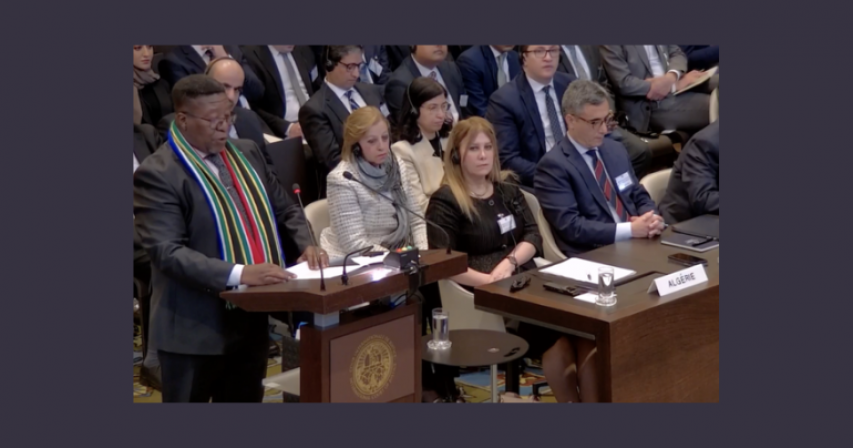ICJ Hearings: South Africa and Algeria Advocate for Palestinian Rights

The second day of oral proceedings commenced at the International Court of Justice (ICJ) regarding the legal implications of Israel's occupation of Palestinian territories. Representatives from various countries, including South Africa, Algeria, Saudi Arabia, the Netherlands, Bangladesh, and Belgium, presented their preliminary arguments. This case is the largest at the ICJ, with over 50 countries providing arguments, and it is anticipated to continue until February 26, with a nonbinding legal opinion expected thereafter.
On the previous day, Palestinian representatives articulated their stance, asserting that Israel's occupation of the West Bank, East Jerusalem, and Gaza Strip is illegal and must cease immediately and unconditionally. However, Israel abstained from attending the hearings but submitted a written statement expressing concerns about potential hindrances to conflict resolution due to an advisory opinion.
Algeria's legal representative, Ahmed Laraba, addressed the ICJ, advocating against the prolonged occupation of Palestinian territories. Laraba emphasized the temporary nature of occupation under Article 42 of The Hague Convention of 1907 and highlighted the discrepancies between intended temporary regimes and the reality of prolonged occupation, underscoring the complexity of addressing the issue.
South Africa's Acting Chief State Law Adviser, Pieter Andreas Stemmet, focused on advocating for the Palestinian people's right to self-determination. Stemmet condemned Israel's expansion of settlement activity, citing violations of the Fourth Geneva Convention. He also drew parallels to the Namibia vs. South Africa case, highlighting the prohibition of apartheid and urging attention to the legal consequences of Israel's occupation.
South Africa's Ambassador to The Netherlands, Vusimuzi Madonsela, urged an end to Israel's violations against Palestinian territories. Madonsela emphasized the prolonged nature of the occupation and questioned Israel's impunity for rights violations. He highlighted ongoing attacks on Gaza and Israel's disregard for legal orders, calling for action to address these violations.
Overall, the ICJ hearings provide a platform for countries to present their perspectives on the legal ramifications of Israel's occupation of Palestinian territories. The arguments presented reflect the complexities and challenges inherent in addressing the issue and underscore the importance of international legal mechanisms in resolving conflicts and upholding human rights.
By: Sahiba Suri





Comments